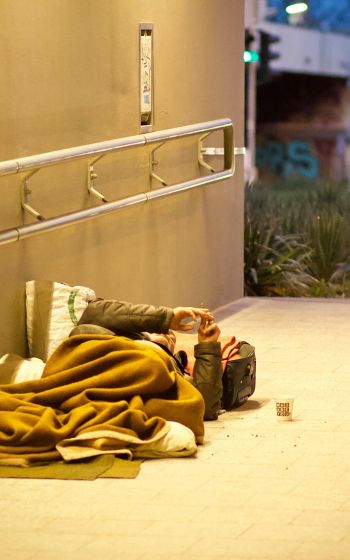The impact of Covid-19: how to support to vulnerable groups?
How are vulnerable groups impacted by the Covid-19 pandemic? This is the second publication in a series of four covering the measures taken by the governments of the six Eastern Partnership countries during the acute phase of the pandemic.
Civil society organisations in the EaP have been instrumental in helping vulnerable groups during the COVID-19 pandemic and in supporting professionals in the health sector. In some cases, they have substituted key government services and responsibilities. CSOs identified the fractions of the population who are the most vulnerable to the COVID-19 pandemic. This identification was based on characteristics like economic status, age, gender identity, sexual orientation, disability and their risk of exposure to the infection.
The first vulnerable group comprises workers who perceive minimum wage, unemployed people, homeless and families living in poverty. Civil society helped this group by fundraising and providing necessary items, like food packages.
Among the second group, elderly people and pensioners who receive minimum state pensions were mentioned the most often. The support to this group consisted primarily of food delivery, the facilitation of access to medicine and healthcare. Victims of domestic violence are also part of the second group. CSOs have supported them by giving access to new shelters, psychological support and legal help.
The third and last group encompasses health professionals, people in jails, nursing homes, psychiatric hospitals and military units. Due to their situation, these individuals cannot keep social distancing measures. Therefore, they are more vulnerable to the infection.
Civil society organisations from the Eastern Partnership have voiced their concerns and identified the major needs related to vulnerable groups. The briefing paper has collected a series of conclusions:
- Resilience-building strategies in EaP societies in the post-crisis era must focus systematically on the most vulnerable groups and support those tending to them
- Health services and capacities at the local and regional level must be strengthened within the planning of the next deliverables for the EaP policy beyond 2020 and within the programming of the EU’s bilateral support in order to address inequalities in access to healthcare
- CSOs which advocate on issues linked to public health and on behalf of health professionals in order to increase their level of protection and recognition should be supported through targeted financial support, alongside CSOs which provide training and education on infection prevention and control measures to health professionals
- Since many EaP countries do not have enough trained epidemiologists, the curricula of medical schools should be reviewed according to the lessons learned
- Lastly, the support to CSOs which provide on-line consultations and psychological assistance to health professionals should be increased
This paper has been elaborated in the framework of the Eastern Partnership Civil Society Forum #PrepareEaP4Health campaign and aims to illustrate the context in which civil society is addressing the challenges brought about by the COVID-19 public health crisis. It is based on the author’s desk research, and collective input from EaP CSF member organisations, provided through an online consultation conducted between 25 March and 3 April 2020. A total of 84 responses from all six EaP countries and EU member states took part in the survey: 25 from Armenia, 13 from Azerbaijan, 5 from Belarus, 10 from Georgia, 6 from Moldova, 17 from Ukraine, and 8 from EU member states. The survey was designed to identify the major needs and concerns of civil society.
Available for download
Briefing Paper on supporting vulnerable groups, 20 July 2020
